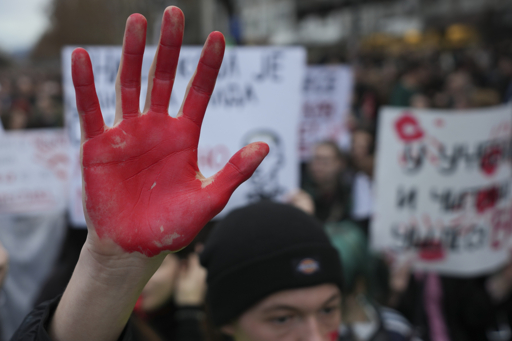Serbia: Mass protests are destabilising President Aleksandar Vucic’s “à la carte” foreign policy. The EU should seize the moment to support democratic change and regional stability.
Serbia: Mass protests are destabilising President Aleksandar Vucic’s “à la carte” foreign policy. The EU should seize the moment to support democratic change and regional stability.
A double bind: How unrest and geopolitics could end Serbia’s government

This is an opinionated article by Engjellushe Morina, Senior Policy Fellow, and Angelica Vascotto, pan-European Fellow at the European Council on Foreign Relations.
This winter has seen Serbian president Aleksandar Vucic skating on dangerously thin ice. Mass student-led anticorruption protests have led to the resignation of the prime minister, Milos Vucevic, as well as several other members of his government. Last week, the president hinted that the turmoil could lead to a snap parliamentary election come spring.
But public anger and Vucic’s collapsing government are far from his only problems. Even before the protests, the president’s longstanding “à la carte” approach to foreign policy of hedging Serbia between the West and Russia (with a side order of China) seemed to be in trouble. Both the European Union and Russia have been pressing Belgrade to choose a side. Now, Vucic has found himself with very little international sympathy for his domestic woes—and very little room for manoeuvre.
This gives Europeans a key opportunity to help steer events towards stability and democratic progress while minimising the risk of regional spillover. To prevent prolonged instability and bring Serbia back on track, the EU should support civil society, address regional tensions, and reinforce Serbia’s European trajectory.
[...]